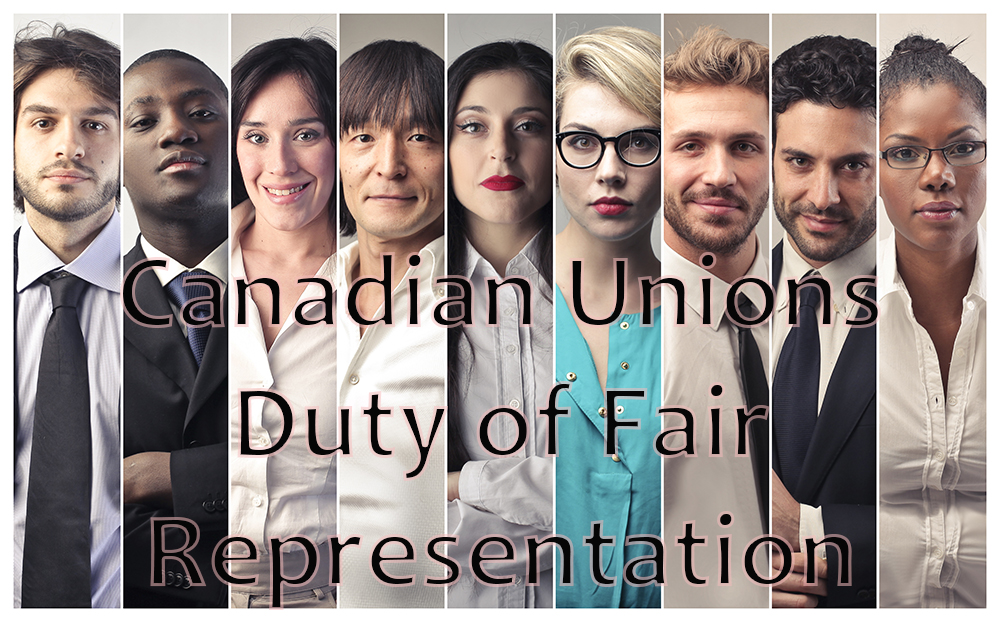In the non-unionized private sector in Canada, workers have legal recourse if they are dismissed without cause. A fundamental freedom for non-unionized workers is the right to have legal counsel that represents solely their interests. With their legal counsel, these workers can then negotiate a settlement with their employer from a position of equality before the law. Workers also have a reasonable idea of what they can negotiate. For example, it is common knowledge in employment law that an employer can dismiss an employee at any time so long as they provide financial compensation for dismissing the employee without cause. The rule of thumb is that the employer would owe the worker one month of salary for each year that the worker was employed at the company plus punitive damages.
The situation is very different for workers in unionized workplaces, which would include companies in the private sector (e.g., the Globe and Mail), crown corporations (e.g., the Canadian Broadcasting Company, Ontario Hydro), and public service institutions such as hospitals and universities. The only options that workers in these sectors have when they are dismissed without cause are the ones provided to them by their union. Since unions have full carriage over their members’ cases when disputes (or grievances) arise with their employer, unions can thus decide which grievances they will process and how they will go about processing those grievances.
Unfortunately, the opaqueness of labour law in Canada allows for our legislation to give the impression to laypeople that unions are accountable to their members when they have a grievance that would be legitimate in the eyes of a reasonable person in the general public. However, this is in fact open to widespread abuse by the unions. For example, s. 54A(3) of the Trade Union Act in Nova Scotia states:
No trade union and no person acting on behalf of a trade union shall act in a manner that is arbitrary, discriminatory or in bad faith in the representation of any employee in a bargaining unit for which that trade union is the bargaining agent with respect to the employee’s rights under a collective agreement.
On the surface, this statement implies that the union would recognize the needs of individual members when processing their grievance. This impression, however, is incorrect.
In situations where the union and employer decide to collude with another to dismiss a worker (e.g., for having a disability or for exercising their right to express dissenting views, such as being critical of workplace hiring practices), most laypeople would believe that this dismissal would warrant a complaint against the union to the Labour Board on the basis of the union’s actions being arbitrary, which can be defined as “conduct [that is] ill-informed, reckless, or indifferent to [the worker’s] interests.” The general idea is that for most reasonable people, a union colluding with the employer to have a worker dismissed would be a clear example of the union being indifferent to the worker’s interests. However, this would be legitimate in the eyes of labour law.
In this situation, the Labour Board would cite the Nova Scotia Court of Appeal’s decision in the Canadian Union of Public Employees (CUPE) Local 2912 vs Nickerson, 2017 NSCA 70. In this decision, the review officer:
noted the principle of collective labour relations that the union, not the grievor, controls the dispute resolution process… When employees decide to have a union represent them, they give the union exclusive authority to represent their interests with regard to the terms and conditions of their employment.
The fact that this ruling would be cited even when their union is colluding with their employer to dismiss them would be outrageous to most reasonable people.
The second statement quoted should be of even greater concern to Canadians for two reasons. First, in unionized workplaces, workers have no choice but to have their union represent them in the event that they have a dispute with their employer. Thus, the wording that implies that employees “decide” to have a union represent them is false. Second, it is highly unlikely that employees are informed at the outset of their employment that they are giving their union exclusive authority to represent their interests, even when there is a clear conflict of interest between the union and employee. In the case of CUPE vs. Nickerson, the review officer goes on to state:
the duty of fair representation does not require unions to make correct decisions, rather they must make decisions that are in good faith, objective and honest; and when the interests of the bargaining unit conflict with the interests of an individual member or members, the union must act in the interests of the bargaining unit.
These statements should be of concern to Canadians. First, for most reasonable people, there is an expectation that their union will make a correct decision. The fact that is not even expected defies all reason. Second, there is nothing in the ruling or in our legislation that requires unions to provide evidence that they are acting in good faith or that they are being objective – or even honest. Third, the union is not required to provide evidence for their position that the interests of the member conflict with the interests of the bargaining unit.
Without being required to provide any evidence to justify their actions, unions are free to do what they wish because there is no mechanism in place to hold them accountable either to the members that are required to have the union represent them or to the public, which funds unions indirectly by, for example, allowing union members to claim union dues on their income taxes. Given the opaqueness of our legislation, it is no wonder that the success rates for Duty of Fair Representation complaints are typically in the range of 0 to 1%.



